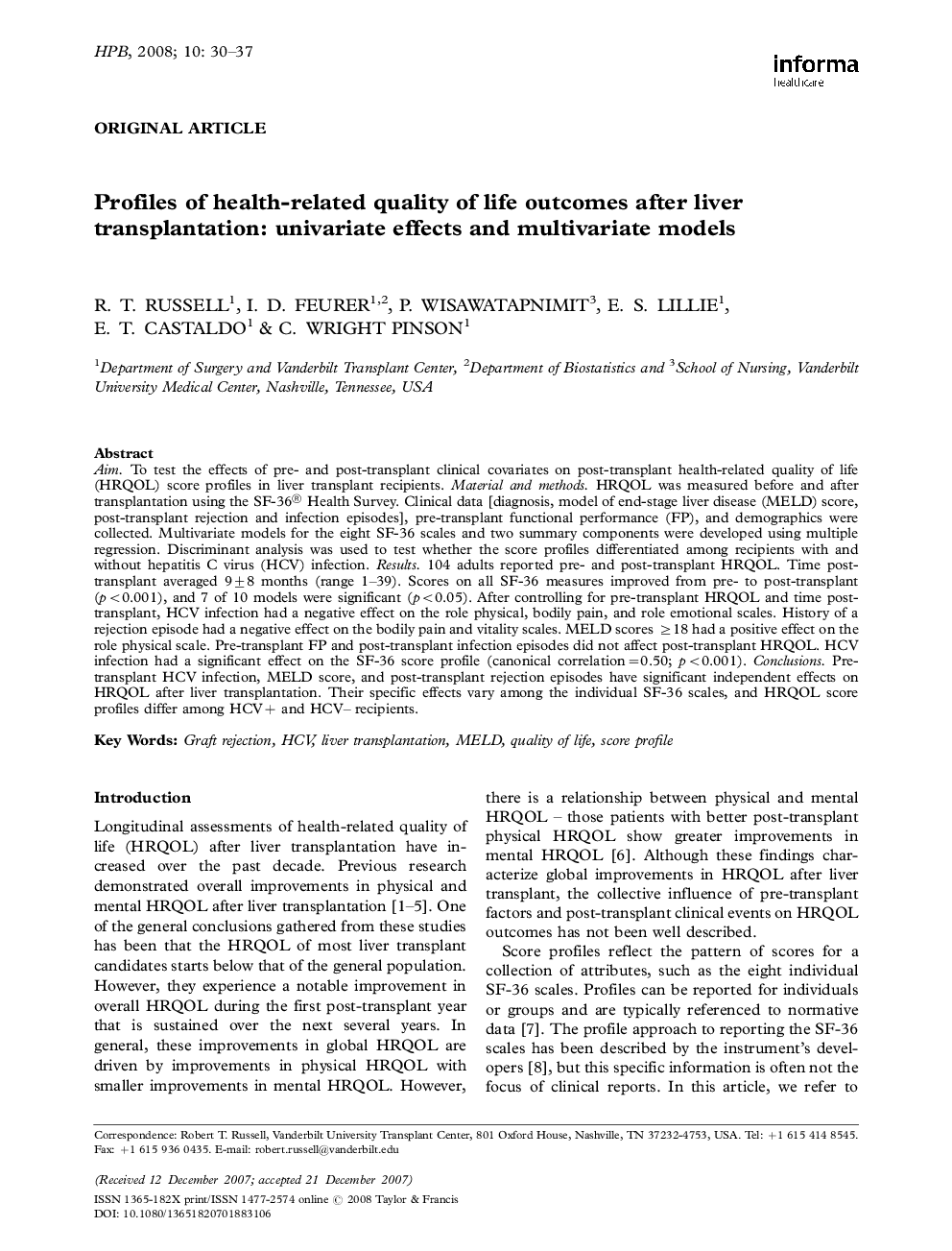| Article ID | Journal | Published Year | Pages | File Type |
|---|---|---|---|---|
| 3270250 | HPB | 2008 | 8 Pages |
Abstract
Aim. To test the effects of pre- and post-transplant clinical covariates on post-transplant health-related quality of life (HRQOL) score profiles in liver transplant recipients. Material and methods. HRQOL was measured before and after transplantation using the SF-36® Health Survey. Clinical data [diagnosis, model of end-stage liver disease (MELD) score, post-transplant rejection and infection episodes], pre-transplant functional performance (FP), and demographics were collected. Multivariate models for the eight SF-36 scales and two summary components were developed using multiple regression. Discriminant analysis was used to test whether the score profiles differentiated among recipients with and without hepatitis C virus (HCV) infection. Results. 104 adults reported pre- and post-transplant HRQOL. Time post-transplant averaged 9±8 months (range 1-39). Scores on all SF-36 measures improved from pre- to post-transplant (p<0.001), and 7 of 10 models were significant (p<0.05). After controlling for pre-transplant HRQOL and time post-transplant, HCV infection had a negative effect on the role physical, bodily pain, and role emotional scales. History of a rejection episode had a negative effect on the bodily pain and vitality scales. MELD scores â¥18 had a positive effect on the role physical scale. Pre-transplant FP and post-transplant infection episodes did not affect post-transplant HRQOL. HCV infection had a significant effect on the SF-36 score profile (canonical correlation=0.50; p<0.001). Conclusions. Pre-transplant HCV infection, MELD score, and post-transplant rejection episodes have significant independent effects on HRQOL after liver transplantation. Their specific effects vary among the individual SF-36 scales, and HRQOL score profiles differ among HCV+ and HCV- recipients.
Related Topics
Health Sciences
Medicine and Dentistry
Endocrinology, Diabetes and Metabolism
Authors
R.T. Russell, I.D. Feurer, P. Wisawatapnimit, E.S. Lillie, E.T. Castaldo, C. Wright Pinson,
